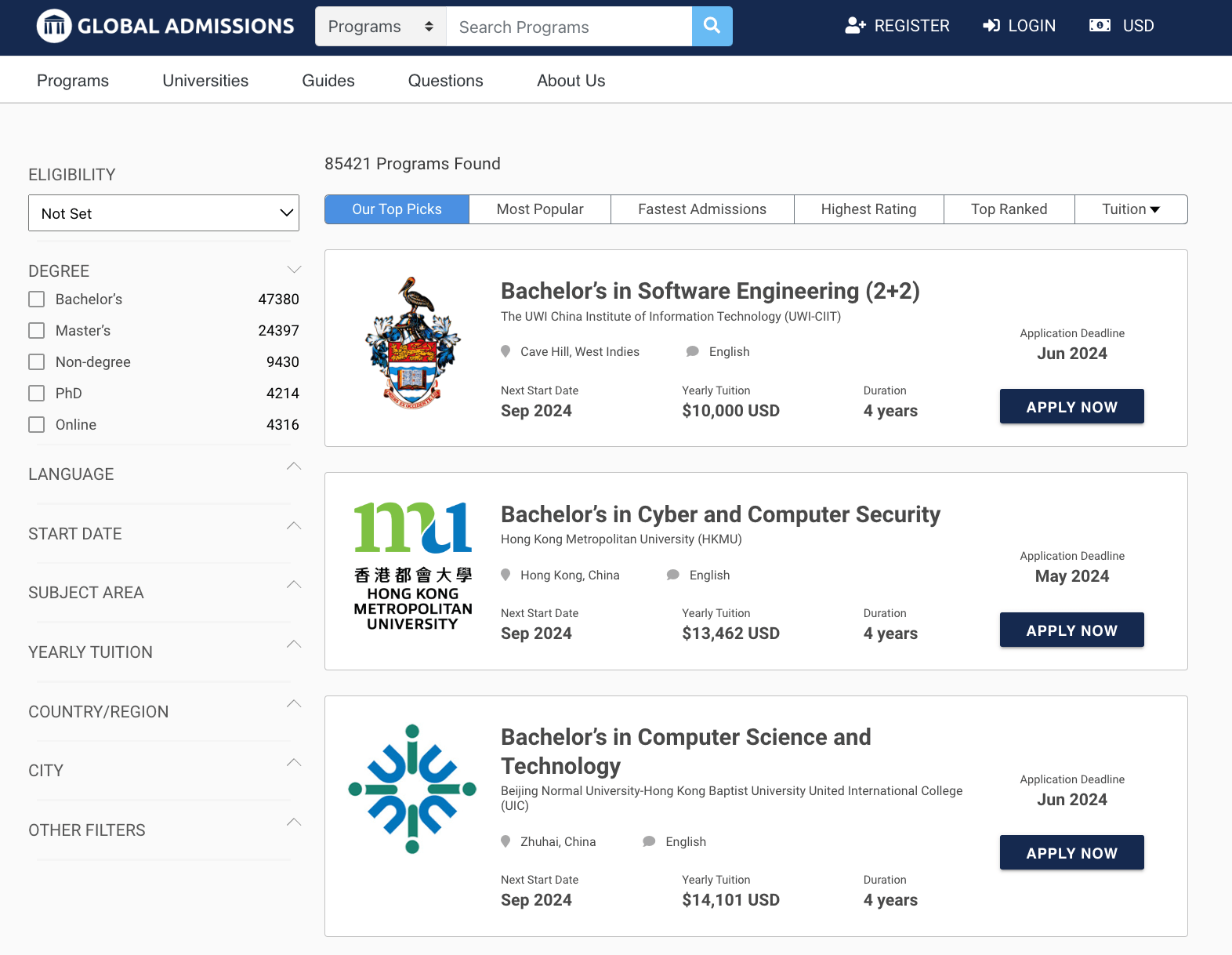“It is in your moments of decision that your destiny is shaped.” – Tony Robbins
Studying abroad is often hailed as a transformative experience that broadens your horizons, enhances your academic credentials, and boosts your career prospects. But it’s not for everyone. If you’re content with staying within your comfort zone, or if your circumstances don’t align with living abroad, then maybe this path isn’t for you.
Here are 100 reasons why you shouldn’t study abroad—unless, of course, you’re ready for the challenge and excitement that comes with it!
1. Comfort Zone Challenges
- You dislike changes: New countries mean new ways of living.
- Home Comforts: Missing your local food and familiar surroundings could be tough.
- Language Barriers: Not ready to learn a new language? This could be a real struggle.
- Fear of Loneliness: Being away from friends and family isn’t easy.
2. Financial Considerations
- High Costs: Studying abroad can be expensive, from tuition fees to daily living expenses.
- Currency Fluctuations: Unpredictable exchange rates can make budgeting difficult.
- Financial Independence: Managing finances in a foreign economy can be daunting.
- Scholarship Scarcity: Depending on your destination or field, scholarships may be hard to come by.
3. Academic Adjustments
- Different Educational Styles: The teaching methods may not be what you’re used to.
- Rigorous Academics: Expectations might be higher than what you’re accustomed to.
- Credit Transfers: Not all courses may count towards your degree back home.
- Longer Duration: In some places, degrees might take longer to complete.
4. Career Impact
- Local Relevance: The degree might not be as valued in your home country.
- Career Interruption: Taking a break from your professional path can be risky.
- Networking Challenges: Building a professional network from scratch can be tough.
- Work Restrictions: Visa limitations might prevent you from working while you study.
5. Cultural and Social Adjustments
- Cultural Shock: Adjusting to new customs and etiquette can be stressful.
- Social Integration: Fitting into a new social circle is not always easy.
- Political Climate: The local political situation might be unstable or unwelcoming.
- Discrimination: Unfortunately, it exists and can be directed towards foreigners.
6. Personal Development
- Independence Overload: Too much freedom, too quickly, can be overwhelming.
- Responsibility Increase: More responsibilities than you’re ready to handle.
- Personal Safety Concerns: Every country has its risks; not all are equally safe.
- Healthcare Differences: Access to and quality of healthcare can vary greatly.
7. Practical and Logistical Issues
- Visa Issues: Getting a study visa can be complicated and is never guaranteed.
- Housing Hassles: Finding safe, affordable, and well-located housing can be tricky.
- Climate Adjustment: Struggling with too cold, too hot, or too rainy weather.
- Communication Struggles: Time zone differences can make communication hard.
8. Emotional Considerations
- Homesickness: It can be more intense than expected and harder to overcome.
- Relationship Strains: Distance can put pressure on personal relationships.
- Emotional Resilience: Living abroad requires a lot of emotional strength.
- Cultural Loneliness: Feeling like an outsider can be emotionally taxing.
9. Misconceptions
- Myth of Constant Travel: Studying isn’t a vacation; actual travel may be limited.
- Glamorization: Social media often paints an unrealistic picture of study abroad experiences.
- Language Proficiency Overestimation: Just because you study it doesn’t mean you’ll speak like a native.
- Instant Adaptation Myth: Adjusting to new cultures takes time and effort.
10. If You’re Still Keen…
- Still Interested? If you’ve read through these points and still feel that studying abroad is for you, then maybe it’s exactly the challenge you need!
- Growth Opportunities: If you’re eager to grow personally, academically, and professionally, studying abroad can be incredibly rewarding.
- Adventure and Discovery: For those who crave adventure, studying abroad is a way to explore the world.
- Cultural Appreciation: If you’re passionate about learning new cultures, there’s no better way.
11. Educational Enrichment
- Access to Renowned Professors: Work with some of the best minds in your field.
- Unique Courses: Enroll in courses that might not be available in your home country.
- Hands-On Experience: Engage in practical, real-world learning opportunities.
- Global Perspective: Gain insights that are invaluable in today’s interconnected world.
12. Future Preparation
- Global Network: Build relationships that span the globe.
- Improved Employability: Enhance your CV with international experience.
- Cultural Competence: Develop skills that make you a valuable asset to multinational companies.
- Problem-Solving Skills: Sharpen your ability to navigate complex, unfamiliar situations.
13. Personal Growth
- Self-Discovery: Learn more about yourself than you might ever have at home.
- Independence: Forge your path and learn to rely on yourself in challenging situations.
- Resilience: Build your capacity to bounce back from difficulties.
- Confidence: Grow in your ability to meet and interact with people from diverse backgrounds.
14. Life-Long Memories
- Unforgettable Experiences: From local festivals to everyday surprises, create memories that last a lifetime.
- Storytelling: Return home with stories that captivate your friends and family.
- Personal Milestones: Achieve goals that you set for yourself at the beginning of your journey.
- Photographic Journey: Capture moments and landscapes that are unique to your host country.
15. If You’re Still Deciding…
- Weighing the Pros and Cons: Carefully consider the potential benefits against the challenges.
- Consult with Alumni: Speak with others who have studied abroad to hear first-hand accounts.
- Financial Planning: Ensure you have a solid plan to manage the expenses without undue stress.
- Emotional Readiness: Assess whether you’re emotionally prepared for the highs and lows.
16. Continued Support
- University Resources: Make use of counselors and support services offered by the university.
- Expatriate Communities: Connect with others from your home country living abroad.
- Mentorship Programs: Seek guidance from those who have navigated similar paths.
- Continuous Learning: Embrace the learning curve that comes with living in a new country.
17. Overcoming Obstacles
- Language Proficiency: Dedicate time to improving your language skills for better integration.
- Cultural Adaptation: Participate in cultural orientation sessions offered by many schools.
- Legal Matters: Stay informed about visa and residency requirements.
- Academic Adjustments: Utilize tutoring and academic advising services.
18. Embracing Challenges
- Stepping Out of Comfort Zones: Push your boundaries and discover new strengths.
- Handling Bureaucracy: Learn to navigate foreign administrative systems.
- Managing Expectations: Set realistic goals for your academic and personal growth.
- Dealing with Setbacks: Develop strategies to handle academic or personal challenges effectively.
19. Realistic Expectations
- No Place Like Home: Acknowledge that homesickness is natural.
- Adjustment Periods: Allow yourself time to adjust to new academic and social climates.
- Work-Life Balance: Strive to find a balance between studies and exploration.
- Learning from Mistakes: View every misstep as a learning opportunity.
20. Still Ready to Take the Leap?
- Prepared for Adventure: If you’re excited by the prospect of overcoming these challenges.
- Driven by Curiosity: If your desire to learn and explore outweighs the fears.
- Committed to Growth: If you see personal development as a key goal.
- Seeking Global Impact: If you aim to make a difference on a global scale.

